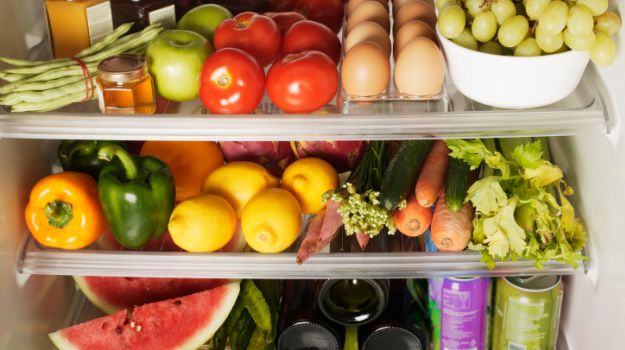
March marks National Nutrition Month, a month dedicated to focusing attention on the importance of making informed food choices and developing sound eating and physical activity habits. This week we have Dylan Farnan, DTR, Whitney Young Health WIC’s Qualified Nutritionist giving you tips on how to make your fresh food last longer..
How often do you plan to use some fresh spinach or new blueberries, go to the fridge, and they are moldy or slimy and need to be thrown away? Here are some tips to help decrease food waste with fresh produce!
1. Meal Prepping
Meal planning is going to be your best tool to minimize the amount of food that ends up in the trash!
- Take inventory what you have in the house before you make your list.
- Plan on using foods that are closest to their expiration dates and just buy what is necessary to do so.
- Try using overlapping ingredients, for example, buy a big bag a carrots and use some in your meal Monday night, Thursday lunch, and Friday night too.
- Set aside some time on your day off and make a shopping list.
- Write out what you’re going to have for lunch and dinner throughout the week. You can even double the recipe so you know that you’ll have leftovers.
- It helps me to keep my meals for the week on my refrigerator so I do not forget! When you get home from grocery shopping prepare 1 or 2 easy meals that you can freeze and utilize later in the week for lunch and/or dinner.
2. What to do with Produce?
- Only buy what you really think you’ll eat in the next few days- don’t try and buy fruits and vegetables to last for a week.
- If you do end up buying too much, trying making shepherd’s pie, roasted vegetables, stir-fry or anything that you know you’ll be able to use all your vegetables.
- You can also freeze fruits and veggies too!
- This works really well with berries, pineapple, peaches, mangos, bananas, and avocados. Just make sure if the fruit needs to be peeled and chopped before putting it in the freezer.
- When you’re ready to use them, just keep in mind that they are going to look and feel different, defrosting them and expecting them to look the same as before just isn’t going to happen.
- These frozen fruits will work really well in smoothies and sauces. You can simply put the fruit (aside from the avocado and banana) into a small sauce pan and cook them down into a sauce to use on pancakes, waffles, French toast or let it cool and fold it into so low fat plain yogurt.
- If you decide to freeze your bananas, put them in a blender or food processor and make a tasty banana ice cream with some peanut butter, a little milk and a splash of vanilla extract.
- If you decide to freeze vegetables, make sure you peel and cut them up. You can use them later in soups, stir-fry’s, pasta sauce, meat loaf or sauce, and omelets.
- Don’t chop up or peel your vegetables and store them in the refrigerator (freezer is fine) unless you know you will use them within a few hours.
- When you pull fruits and vegetables apart, the cells are broken as a result and that can lead them to spoil faster.
- Do not store fruits and vegetables in airtight bags, this will actually speed up ripening and lead them to decay faster.
For more information or to make an appointment with Dylan Farnan DTR, call (518) 465-9387. Don’t forget to like Whitney Young Health WIC on Facebook!
—
Sources:
https://www.thekitchn.com/the-kitchns-guide-to-storing-fruits-and-vegetables-tip-roundup-176308
https://nutritionstudies.org/5-tips-for-storing-fresh-fruits-and-vegetables/
